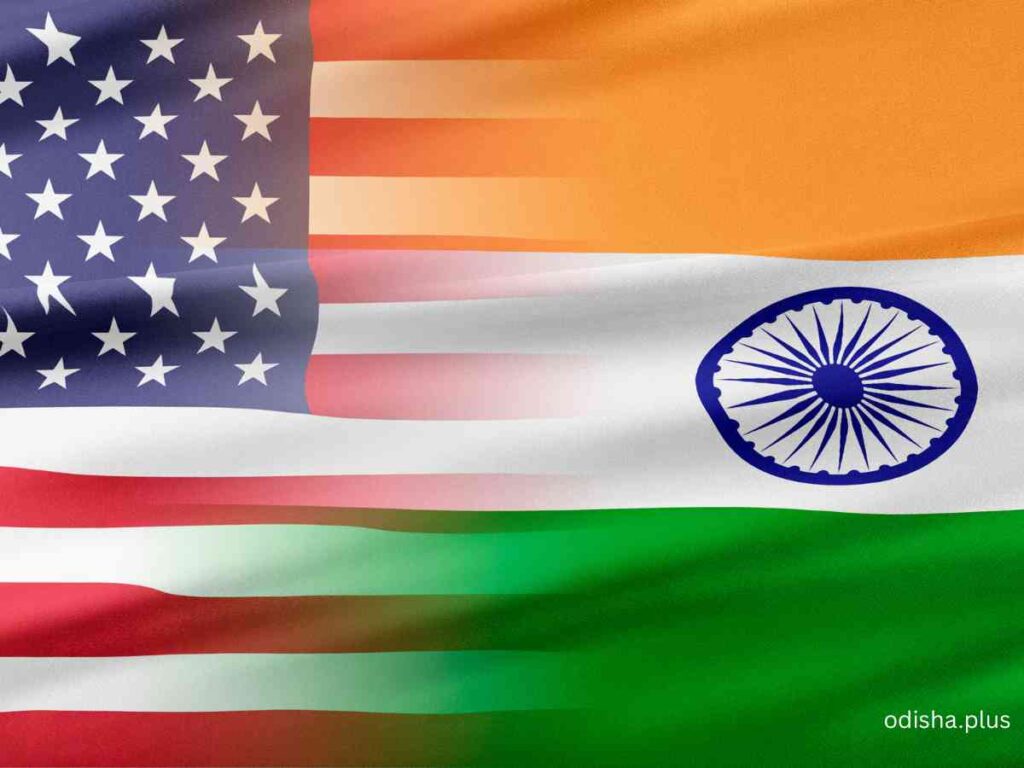The global community has long recognized the intellectual engagement and diplomatic finesse of the Indian people. Their exceptional blend of intellect and character, along with the valued skill to analyze or balance conflicting perspectives, patience, composure and wisdom
Himanshu Patnaik

A country characterized by hyphenated identities, oddly boasting about its ‘lack of culture’ (Brogan), and defined by its dual characteristics of ‘social Darwinism’ and Anglo-Saxonism, assumes the role of a global ‘Big Brother’ while engaging in covert maneuvers, fabrications, and evasions – this is the perception of the U.S. for many.
As Thomas A. Harris articulated, the United States must remember that ‘the people of the world are not objects to be manipulated but individuals to understand, not heathens to be converted but individuals to be listened to, not adversaries to be despised but individuals to be engaged with, not brothers to be controlled but brothers to be embraced.’
The perception of India by Americans has undergone a significant transformation from the era of F.D. Roosevelt to the present day. Prior to the onset of World War II, Roosevelt advocated for Churchill to grant India its independence. In contemporary times, India is often viewed as a vast, indistinct mass of individuals whose significance is primarily determined by its shifting role in the global power dynamics. The United States regards India as a ‘complex nation.’
Consistent with historical trends, the motto of America remains focused on business, as articulated by President Calvin Coolidge. Consequently, American Presidents have frequently approached international matters with a facade of dishonesty, exemplified by the case of Ion Perdicaris, whose Greek identity was replaced with a fabricated American identity to justify U.S. intervention in the Moroccan crisis of 1906. Another notable instance occurred during the Portsmouth Treaty negotiations (1905-1906), following Japan’s victory over Russia, where President Theodore Roosevelt, known for his ‘speak softly and carry a big stick’ philosophy, presided over the proceedings yet denied Japan its rightful rewards.
This President was awarded the Nobel Peace Prize in 1906, a situation that could be seen as poetic justice, especially when considering the current President Trump, who is skilled in transient deceptions and seeks similar accolades.
Unfounded beliefs are often more detrimental than logical mistakes. The cease-fire was not initiated by Trump, as documented evidence indicates. Trump, known for his fabrications since his time in WWE, claims credit for the cease-fire based on nuclear threats and potential trade boycotts, boasting about his influence.
His frustration over the lack of a cease-fire in the Ukraine conflict was evident to the world. The mindset of ‘either Caesar or nothing’ is inappropriate; India’s recent trade sanctions against the US reflect this principle. Trump should understand that an ostrich’s wings are meant for running, not flying.
Indians should recognize that Trump’s current pro-India stance should not confuse us. This surge of sentiment is indicative of emotional insincerity from those lacking genuine feelings. A wise individual scrutinizes their shortcomings more than their strengths; the foolish do the opposite. The United States’ involvement in the ongoing crisis appears to be based on flattering misconceptions.
The American ideal has come to an end. As Thomas Morton stated, ‘We can no longer extend ourselves from a superior and more refined position to point down at those on earth to illustrate the principles of our republic. We find ourselves in the same predicament as everyone else. Should we disregard all of this?’ Time will ultimately disclose the truth. As Euripides remarked, ‘Time will reveal all; it is a chatterbox and speaks even when not prompted.’The concept articulated by Spinoza, that all determination is negation, suggests that to define reality is to impose limitations upon it.
In examining the current national and international landscape, we are confronted with alarming issues such as the potential nuclear fallout in Pakistan, the underperformance of the ostensibly superior Rafael in comparison to the Chinese PL 15 E, the aggressive actions of China exemplified by the Arunachal Pradesh situation, the unyielding stance of Bangladesh and Sri Lanka, the persistent terror threats emanating from Pakistan, the precariousness of the Islamic world, the disarray within Europe, President Putin’s dissatisfaction regarding the ceasefire, the covert operations of terrorists supported by financial aid from the IMF, the narcotics trade that empowers groups like Lashkar-e-Taiba, the self-serving behavior of multinational corporations, the inept economic policies that have hindered India’s domestic growth, and the recent, albeit unnecessary, and costly caste census.
The indifference displayed by the Home Ministry regarding intelligence reports concerning potential terrorist threats in Pahalgam is a disappointing indication of our effectiveness. We must insist on integrity, transparency, and accountability from our elected officials.
Regrettably, our contemporary culture is increasingly influenced by the blatant vulgarity associated with newly acquired and ill-gotten wealth, while societal manners and morals continue to deteriorate. Ambani, a billionaire on multiple occasions, does not need to bow before a former plastic duck salesman. Adani, the privileged monopolistic offspring of the Indian economy, is currently confronting legal challenges in US courts, as he clings to the hope of an unjust outcome, reminiscent of previous cases highlighted by Shanti Bhushan.
The most recent disruption in our economic landscape is the World Bank‘s abrupt denial of India’s loan request. This decision is supported by statistics, which reveal that the total loans from the World Bank to India have surged from 64 lakh crore in 2014-15 to 173 lakh crore in 2023-24, with 81% of our GDP now encumbered by debt.
It is not our intention to paralyze the government with cold indignation over its myriad logical failures, nor to allow an air of unconventionality to envelop these issues. We need not burden our sense of dignity with emotional volatility.
The global community has long recognized the intellectual engagement and diplomatic finesse of the Indian people. Their exceptional blend of intellect and character, along with the valued skill to analyze or balance conflicting perspectives, patience, composure, and wisdom, as well as the ability to skillfully differentiate and unify, are more relevant than ever.
We must remember that our culture has consistently embodied a transient whisper of elegance, where potential converges with grace.
(The writer is former Professor and Head of PG Department of History, Utkal University. Views are personal.)


























